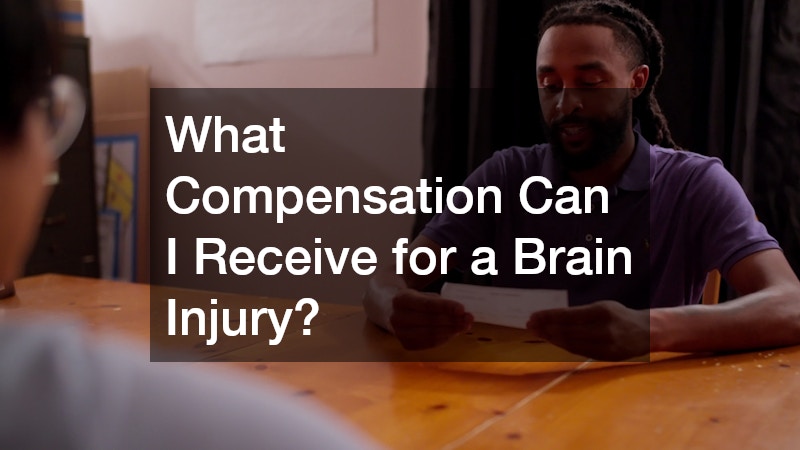
Suffering a brain injury can drastically impact every aspect of a person’s life. Whether caused by a car crash, a slip and fall, medical mistakes, or a violent incident, the effects often extend far beyond the physical, affecting emotional well-being, relationships, and the ability to function day-to-day. If the injury happened because of someone else’s carelessness or misconduct, you may have the right to pursue financial compensation. But how can you be sure your situation qualifies? What legal protections do you have? And what steps should you take to get started?
This article offers a clear overview of brain injury compensation claims, helping you better understand your rights and options moving forward.
What is a Brain Injury and How Can It Affect You?
A brain injury can vary from a minor concussion to a severe and life-altering trauma. These injuries often result from accidents such as falls, vehicle collisions, medical negligence, or situations where the brain is deprived of oxygen. Even less severe brain injuries can cause problems like difficulty concentrating, fatigue, mood swings, and memory issues. In more serious cases, individuals may face permanent disability, requiring long-term treatment, therapy, or daily support.
The aftermath of a brain injury extends far beyond the physical symptoms. It can disrupt your emotional well-being, strain relationships, and create significant financial burdens. Understanding how a brain injury affects your life is key to pursuing the support and compensation you may need to recover, rebuild, and plan for the future.
Can I Claim Compensation for a Brain Injury?
If your brain injury was caused by someone else’s negligence—such as a reckless driver, an unsafe workplace, or a negligent healthcare provider—you may be entitled to file a personal injury claim. This process typically involves proving that another party had a duty of care toward you, breached that duty and that breach directly caused your injury.
Common situations where you can file a brain injury claim include:
- Car or motorcycle accidents
- Slip and fall accidents in public or private properties
- Workplace accidents or unsafe working conditions
- Medical malpractice or surgical errors
- Assaults or physical attacks
To start your brain injury claim, you should speak to a qualified personal injury lawyer. They can help gather evidence, assess the value of your claim, and guide you through the legal process.
What Compensation Can I Receive for a Brain Injury?

Understanding the types of compensation available can help you assess the potential value of your claim. Brain injury compensation typically covers both economic and non-economic losses. These include:
Economic Damages:
- Medical bills (past, current, and future)
- Rehabilitation and therapy costs
- Lost income or loss of future earning capacity
- Home modifications or assistive devices
Non-Economic Damages:
- Pain and suffering
- Emotional distress
- Loss of enjoyment of life
- Loss of companionship or consortium
In some cases, you may also receive punitive damages if the defendant’s conduct was especially reckless or malicious.
How Long Do I Have to File a Brain Injury Claim?
The legal deadline for filing a brain injury compensation claim is known as the statute of limitations, and it varies depending on your jurisdiction. In many places, the deadline is between one to three years from the date of the injury—or from the date the injury was discovered.
There are some exceptions:
- If the injured person is a minor, the deadline may be extended until they reach legal adulthood.
- If the brain injury results in cognitive impairment, courts may extend the time limit to allow the injured person to seek help once they are legally and mentally able.
Failing to act within the time limit could result in losing your right to claim, so it’s important to consult a lawyer as soon as possible.
What Should I Do After Suffering a Brain Injury?
Taking the right steps after a brain injury can make a big difference in the outcome of your claim. Here’s what you should do:
- Seek immediate medical attention – Always get a full evaluation, even if symptoms seem mild at first.
- Document the incident – Take photos, collect witness statements, and save medical records.
- Keep track of symptoms and expenses – Maintain a journal of how the injury affects your life and save all receipts.
- Contact a brain injury lawyer – Choose a lawyer with experience in brain injury claims to represent your best interests.
These actions not only protect your health but also strengthen your case if you decide to pursue legal compensation.
Do I Need a Lawyer to File a Brain Injury Claim?

While it’s legally possible to file a claim on your own, working with a personal injury lawyer greatly improves your chances of success. Brain injury cases can be complex, involving medical records, expert testimonies, and negotiations with insurance companies.
A lawyer can help:
- Determine if you have a valid case
- Calculate the full value of your claim
- Negotiate with insurance companies
- File a lawsuit and represent you in court if necessary
Most personal injury lawyers offer free consultations and work on a no-win, no-fee basis, meaning you don’t pay unless your case is successful.
Conclusion: Know Your Rights and Act Early
If you’re asking yourself, “Can I claim compensation for a brain injury?” the answer usually depends on the cause of the injury and whether another party is legally responsible. Acting quickly by consulting a legal professional can help safeguard your rights, secure critical evidence, and improve your chances of receiving fair compensation.
Brain injuries can have lasting, life-altering effects—but you’re not alone. With the right legal guidance and a firm grasp of your available options, you can take the necessary steps toward recovery and justice.

